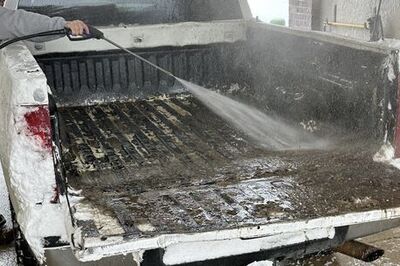
views
It was teenager Pierre Gagne’s dream to visit Kerala, which was among ‘the first 50 must-see destinations of a lifetime.’ What welcomed him were streets in big cities resembling garbage dumps. It was during his visit that Chikungunya claimed 200 lives in the state. He later said, ‘Man is turning God’s Own Country into the devil’s backyard’. Chikungunya gave way to dengue fever and then to swine flu. These days, it is the turn for rat fever to ravish the state, which boasts of health standards at par with the West. What is the cause for these diseases to single out Kerala? The most prominent one is inefficient waste management. The state today is a big heap of garbage owing to total collapse of waste management systems which has failed to keep pace with unprecedented urbanization. Even the coastal areas are not spared. According to the Pollution Control Board, one million cubic meters of sewage is generated in the state’s coastal areas, of which, 30,000 cubic metres reach the surface of water bodies. The backwaters of Kochi alone receive 60 tonne of sewage from the city. The panoramic backwaters are fast turning into environmental cesspools. Here, the main culprits are the houseboats. The existing waste dumping sites are full beyond capacity. People dump waste at gay abandon, as they please. So what? It leads to pollution of water sources, foul smell, unaesthetic ambience, release of toxic metabolites and proliferation of vectors of communicable diseases like the aedes mosquito that spreads chikungunya and dengue fever, and rats that spread leptospirosis or ‘rat fever.’ In earlier days, municipal waste comprised mainly biodegradable matter, which did not create much problem to the community, but with rampant use of plastics and bio-nondegradable packaging materials, disposal of municipal waste became a gargantuan task. There are a number of methods available for efficiently dealing with waste management like vermi- composting, biomethanation/bio-waste derived fuel, incineration, pyrolysis and gasification, plasma pyrolysis, pelletization/production of Refuse Derived Fuel (RDF). The suitability of a particular technology depends on factors like techno-economic viability, environmental safeguards, sustainability and location specificity. The onus for efficient waste management lies with the local governing bodies, undoubtedly; however, citizens cannot wash their hands of this responsibility. Efficient waste management must start from every home in the state. Every household must ensure proper segregation of waste into: sharps (broken glass, bulbs, and utensils), degradable (waste from the kitchen such as vegetables, meat, and leftover food), electronic (used batteries, discarded electronic gadgets). Wastes thus segregated must be handed over to collection personnel in strong paper bags lined with cloth, strong enough to carry the waste. Plastic bags must never be used for this purpose. Manufacturing such bags from old newspapers can be developed into a small-scale industry, providing employment to many. Things that hold water like stagnant flower pots, old tires, coconut shells, plastic covers and other nondegradable materials must be removed from the surroundings of every home. Mosquitoes, especially the aedes species breed in stagnant water. Every home itself should be a mini- waste disposal plant. Deep, covered pits can be dug within the compound. As space allows, waste can be dumped in these pits and subjected to vermi-composting. Littering must be banned henceforth, and heavy fines imposed, if caught. Once clean beaches and open spaces are invariably littered. Even the practice of throwing away a piece of paper from within a running car onto the road must be banned. Waste, be it of any kind, must be carried to one’s own home and disposed off in the waste bin there, and not on roads. Wastes thus segregated at homes must be promptly collected by local governing bodies by employing adequate number of personnel, adequately equipped for the same. That itself can provide employment to many. Last, but not the least, plastic carry bags must be banned. Let us return to those days when stuff bought from shops were carried home, packed conically within old newspaper and secured with jute twine. These never used to clog drains. And life was healthier, and the state cleaner. (The writer is senior specialist, Lakeshore Hospital, Kochi)
















Comments
0 comment